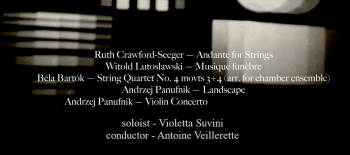‘The Constitution of 3 May was the second in the world and the first modern constitutional act in Europe. Its aim was to modernize and streamline the system of power, so it would be possible to build an efficient administration, an army and to carry out social reforms that would enable the economy to develop. The Constitution did not save the PolishLithuanian Commonwealth, but this in no way diminishes its historical significance. Above all, this act of wisdom on the part of the elites testified to their ability to communicate across divisions and to diagnose the country’s greatest political problems. It also demonstrated their will to find much needed remedies for the weaknesses from which their country suffered.’
Argues professor Richard Butterwick-Pawlikowski of UCL London in his latest book ‘The Constitution of 3 May 1791. Testament of the Polish-Lithuanian Commonwealth’ published by the Polish History Museum in Warsaw.
We present you a video lecture with a professor discussing issues, covered in depth within this fantastic book, condensed to 45 minutes of captivating history behind Europe’s first constitution.
All shot in the stunning interiors of the Senate Chamber of the Royal Castle in Warsaw, which team have also supported the Institute in producing this video every step of the way – thank you for this!
Sit down, relax and enjoy the history behind the Constitution of 3 May.
When on 3 May 1791 the Four-Year Sejm also called the Great Sejm adopted The Government Act of the Polish–Lithuanian Commonwealth later known as the Constitution of 3 May, the Polish-Lithuanian state became the Europe’s first and the world’s second that passed the basic law. For its time, it was a progressive and bold legal act which initiated a number of reforms. It also constituted a crowning achievement of the centuries-old links between Poland and Lithuania.
Today as we celebrate the 230th anniversary of adopting the Constitution of 3 May by the last King of Poland and Grand Duke of Lithuania Stanisław August Poniatowski, it is worth mentioning that it is the May Constitution that introduced, among other things, the principle of the tripartite separation of power, and reformed the existing political system ensuring more equal treatment of all nationalities within the Commonwealth. The Constitution also expressed the nation’s will to defend Poland’s independence following its first partition by Austria, Prussia and Russia in 1772.



